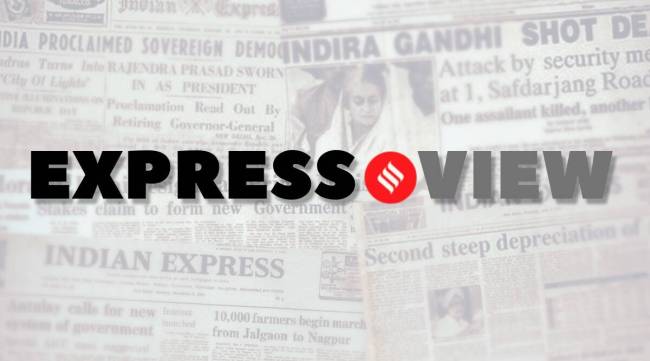Opinion The Express View on the governors’ reshuffle: Raj Bhavan Dharma
New governors need to uphold the balance of powers, spirit of federalism – without playing Opposition to the state government.
 The courts have in the past drawn the line on the powers of governors and raised the bar on the misuse of Article 356 to dismiss state governments.
The courts have in the past drawn the line on the powers of governors and raised the bar on the misuse of Article 356 to dismiss state governments. The reshuffle in Raj Bhavans comes at a time when the office of governor has been in the spotlight. The 13 names announced by the President of India on Sunday include politicians from the BJP, a retired Supreme Court judge, and two Army officers. This is the professional pool that has historically contributed men and women to the Raj Bhavans. Retired judges and generals have been made governors in the past, including by Congress-led governments. However, the appointments have come under scrutiny because governors in most Opposition-ruled states — Tamil Nadu, Delhi, Jharkhand and Kerala, for instance — are seen to be locked in conflict with the respective state governments. These tensions have the potential to exacerbate as the general election nears and the political temperature rises. Against this backdrop, it is important that the balance of powers between the Raj Bhavan and the elected government is respected. Both the Centre and the Raj Bhavan need to allay the perception that the governor works at the behest of Delhi to keep the pot simmering under the state government. The Centre must allow enough room to the Raj Bhavan to function: The independence and autonomy of the office should not be compromised.
The challenge for the new governors is to refuse the lure of local politics, maintain the dignity of their office and uphold the federal spirit in the Constitution. The governor’s office is expected to conduct itself as per the counsel of the elected government. Indeed, the governor is the representative of the Union in the state. But that is no reason for the Raj Bhavan to see itself as a parallel power centre and usurp the authority the elected government is expected to wield. In recent times, many governors, unfortunately, have stepped out of line and complicated relations with the local government. In Tamil Nadu, Governor R N Ravi has been at loggerheads with the DMK government over a range of issues from political legacies to the treatment of Dalits. A welcome change to this trend has been the new governor of West Bengal, C V Ananda Bose, who appears keen to maintain a genial relationship with Trinamool Congress leaders. Ironically, BJP MLAs in Bengal have turned against Bose, a former IAS officer who joined the party after retirement.
The courts have in the past drawn the line on the powers of governors and raised the bar on the misuse of Article 356 to dismiss state governments. It is best if governors follow the rule book and continue as custodians of Constitutional values rather than seek a political profile. More so because Raj Bhavan is an institution — sharply defined by the individual.






